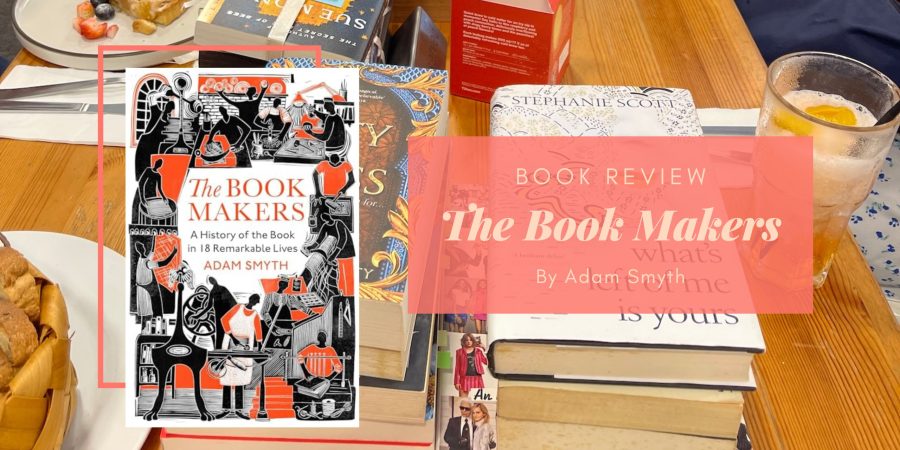I am obviously not going to pass on a book about books, so I was very excited to read The Book Makers and quite determined to share my review with my fellow book lovers!
Through 11 chapters, The Book Makers explores the lives of 18 individuals and the various facets connected to a book, including:
- Binding
- Paper
- Printing
- Illustrations
- Circulation (i.e. the Lending Library)
- Zines
- And more!
It was honestly fun to learn more about the different aspects of a book. Because Smyth focuses on one or two lives in one chapter, we only get a snapshot of the history (granted, normally a pivotal moment in the history of that part). But that is enough to develop an appreciate of how much went into making the book the way we know it today.
My three favourite chapters were the ones on:
- Cut and Paste – how Mary and Anna Collett wielded their scissors to rearrange the Bible and create a new work from it. I was surprised by how books have been changed since the 17th century, a good reminder that books are not signs of stasis but can still be manipulated after publishing
- Extra Illustration – looking at the trend of augmenting books with relevant illustrations, thus adding depth or perhaps introducing certain interpretations. This chapter somewhat overlapped with the one on Zines (though I felt the Zine chapter, with three people featured, felt a little too rushed) and also the one on Cut and Paste, which again shows how people have always changed and personalised the books that they bought.
- Circulation – looking at Charles Edward Mudie and his lending library and how it shaped not just taste (leading to protests when he did not include certain books in his library) but also the way people wrote novels (Mudie liked the three volume novel as it helped justify a subscription to his lending library). It’s vey much similar to how programmes like Kindle Unlimited or even how online bookstores used to rank books/recommend books that influenced the way authors write (write to market, writing in certain niches, etc).
As you can see, a book is more than just paper and ink. Every part of it has a rich history of its own and has been influenced by many individuals throughout time. The Bookmakers was a good reminder that books did not magically appear in its current form but was always changing and negotiating with the contemporary technology and needs of its day.

This sounds absolutely fascinating! Adding this to my tbr because learning more about this hobby we’re all so obsessed with is a must!
Right?? I didn’t think the book as an object had so much history and I loved that it explored the lives of various people too!
[…] you enjoy books like this, I think it might be fun to read The Notebook alongside The Book Makers (my review here). The Book Makers looks at the history of the book as a physical object and some sections, like the […]